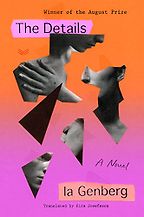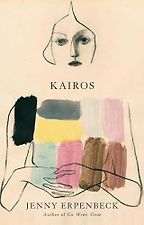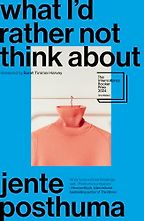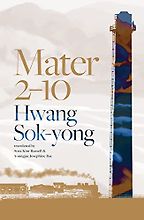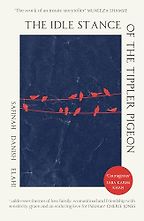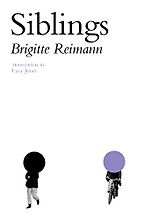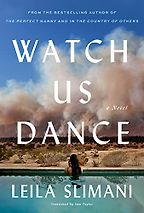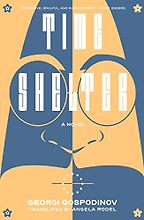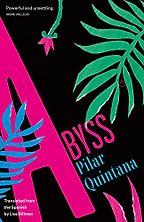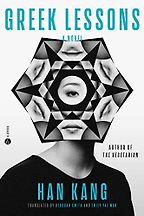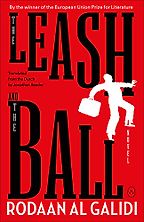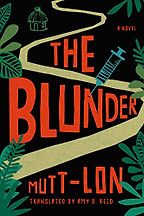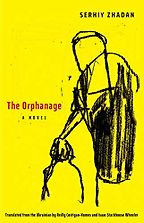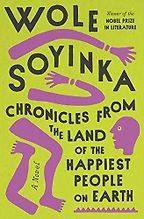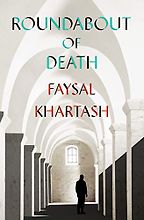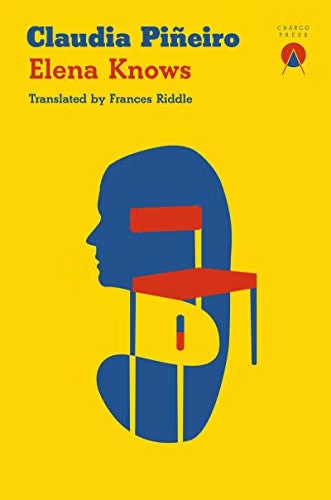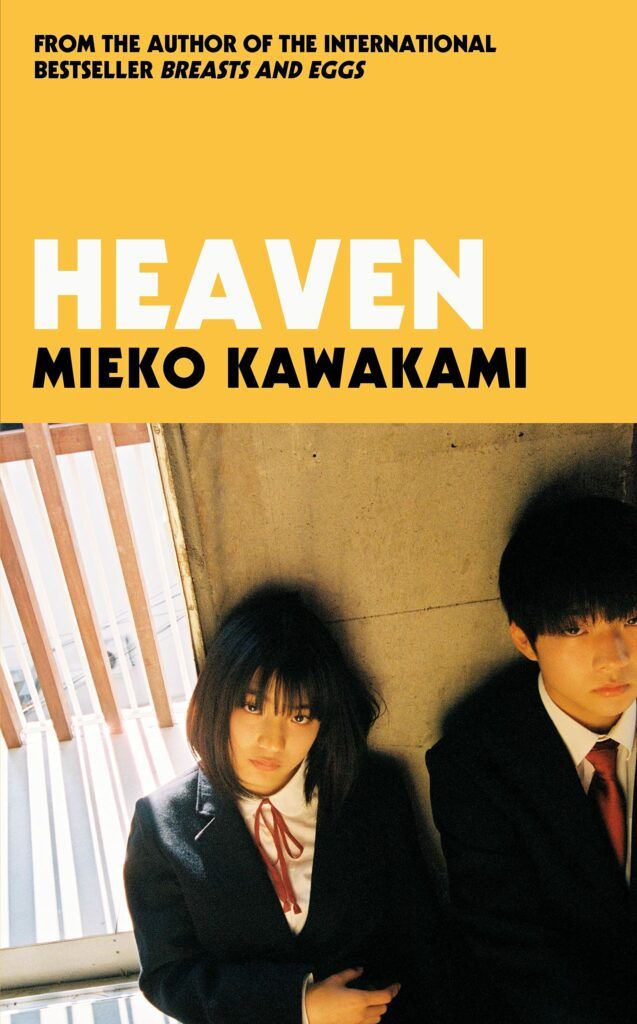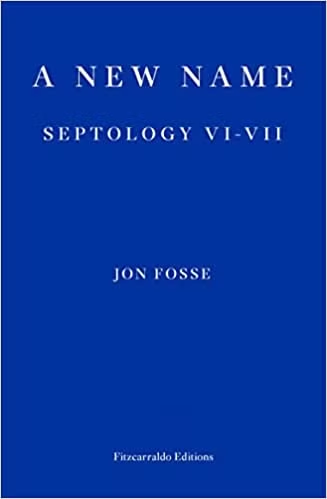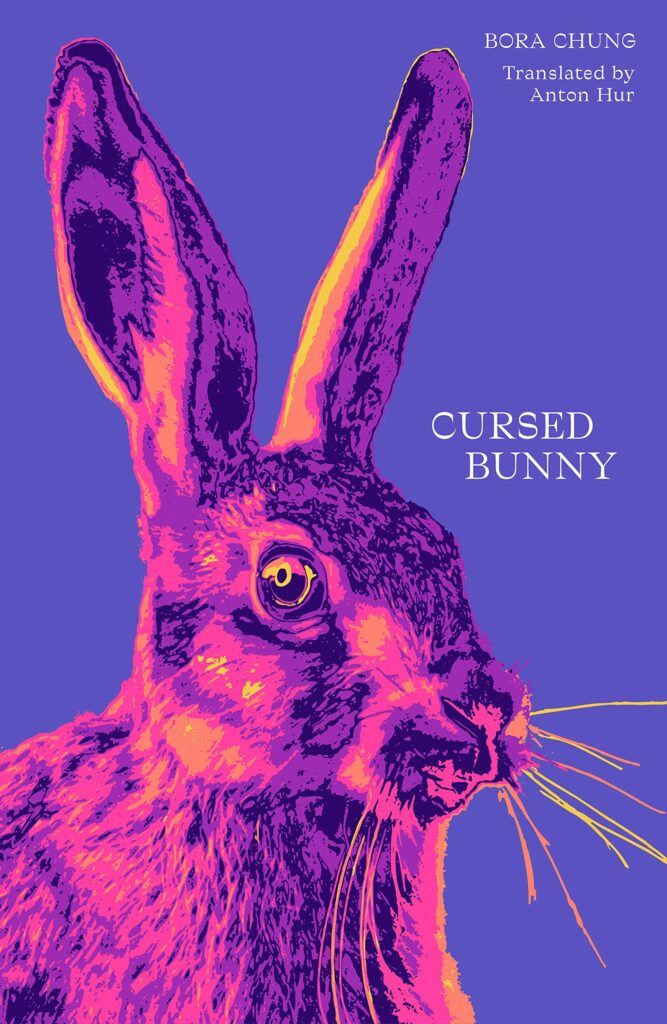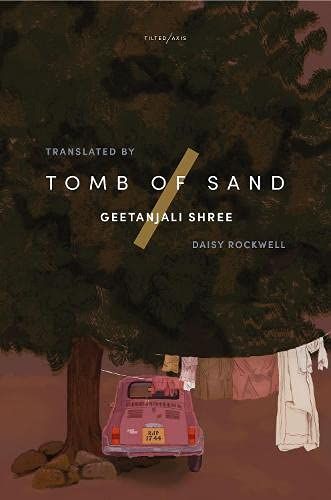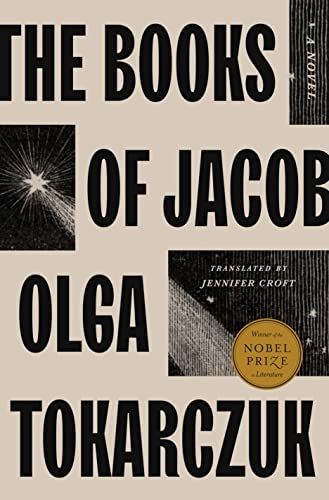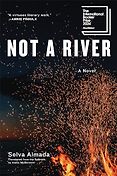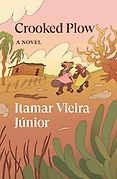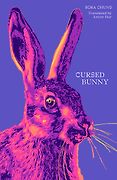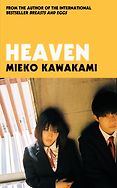New Books From Around the World
Last updated: April 24, 2025
Some highly readable and thought-provoking novels from around the world are being translated into English, opening up new worlds to readers. As well as including books shortlisted for the Booker International Prize, we list some of our favourites here. These are often books that have been bestsellers in their original language, or whose authors have won international prizes, such as the EU Prize for Literature or the Prix Ahmadou-Kourouma, a Swiss French-language prize for an African novel.
“This is a slim, elliptical novel, a portrait of four relationships that seduced me from the start. There’s something about the tone, the intimacy… As Edgar Allan Poe put it: melancholy, beauty, loss—what is more poetic? Then she throws in a slew of literary references, mediating the world through books, reflections on life, relationships, our contemporary experience of connection and isolation. The way she uses language! This is another book I kept wanting to quote from.” Read more...
The Best Novels in Translation: The 2024 International Booker Prize Shortlist
Eleanor Wachtel, Broadcaster
Kairos
by Jenny Erpenbeck, translated by Michael Hofmann
🏆 Winner of the 2024 International Booker Prize
“The story unfolds around a disturbing affair between a 19-year-old student and a 53-year-old married writer in East Berlin. Initially there is intense attraction. They both love music and art. He is a kind of mentor to her. They meet in secret, it’s very dramatic. It starts with love and passion, but it’s at least as much about power, art and culture—a different kind of obsession. The discussions of music, poetry and theatre take place alongside the political upheavals. It’s a novel about the weight of history, how it impinges on our lives.” Read more...
The Best Novels in Translation: The 2024 International Booker Prize Shortlist
Eleanor Wachtel, Broadcaster
What I’d Rather Not Think About
by Jente Posthuma, translated by Sarah Timmer Harvey
“This is Posthuma’s second novel, her first to be translated into English. To give you a thumbnail description, it’s about a young woman whose twin brother—45 minutes her senior—is suicidal. She has to deal with his death at 35. It’s written in short sketches. It’s smart, well-observed, powerful, very controlled. It has lots of substance despite what on the surface appears to be a slim narrative. Without being showy, it’s impressively accomplished.” Read more...
The Best Novels in Translation: The 2024 International Booker Prize Shortlist
Eleanor Wachtel, Broadcaster
Mater 2-10
by Hwang Sok-yong, translated by Sora Kim-Russell & Youngjae Josephine Bae
“Mater 2-10 refers to a locomotive that was captured during the Korean War by the South Korean army as they advanced north. In 1950, the American army destroyed it to keep it out of enemy hands. Then, in the early 2000s, it was restored and became an icon of the Korean War, and the division of the country. It’s an epic story, as you said. It threads together three generations of railroad workers over a century of Korean history, a complicated national history of occupation and freedom, alongside the political struggles of the working class.” Read more...
The Best Novels in Translation: The 2024 International Booker Prize Shortlist
Eleanor Wachtel, Broadcaster
Crooked Plow: A Novel
by Itamar Vieira Junior, translated by Johnny Lorenz
“This is Vieira Junior’s first novel. He has published a collection of stories, and has since come out with a second novel. He comes to this from an academic background; his doctoral research focused on the ongoing struggles of the quilombolas, the African-Brazilian communities organised by escaped slaves and their descendants. Crooked Plow is a vivid tale which won many of the major literary awards in Brazil and became a bestseller. It offers a unique window into a world where the legacy of resistance and the fight for land rights weave through the personal and collective narratives of its characters. At the same time, it also reflects the global struggle for environmental preservation, social justice, and cultural identity.” Read more...
The Best Novels in Translation: The 2024 International Booker Prize Shortlist
Eleanor Wachtel, Broadcaster
“Selva Almada is, in many ways, the writer of the river. She often sets her stories on a river landscape. This has is rooted in a very interesting tradition in Argentinian literature or literature from the River Plate, whereby othe well-known writers have taken the river as a scenario to explore a certain narrative. Not a River is a book written by a woman, but the main characters are men. In other words, Selva shows in this novel a very masculine world. I don’t want to spoil the story, but the focus is on three big, masculine men who treat the river as if they were its owners.” Read more...
Five of the Best 21st-Century Argentinian Novels
Claudia Piñeiro, Novelist
“It was a story that had been sitting with me for a very long time, and I just wasn’t able to put it down. The home that the main characters, Misha and Zohaib, live in, is my childhood home. The mulberry tree, the big garden, and the staircase—all of that is based on my childhood home, but the characters are fictional. The story is about a pair of siblings and their househelp’s daughter. I wanted to talk about class structures in Pakistan. Because my first novel dealt with the elite class, I wanted this to be a commentary between the middle, the lower, and the upper class. I draw that comparison by the househelp’s daughter being best friends with the two children in the house. I tried to show how the children are able to form a deep friendship with Nadia, who’s the househelp’s daughter, but there is this resentment and tension in the air when the adults are involved. It deals with harassment, at different levels, in Nadia’s life, and it deals with mental health. I tried to touch upon quite a few things without actually saying too much, but my main focus was on what a woman’s life looks like when she is plucked from a very low class and dropped into the upper class and then the middle class. It’s a commentary on what happens when a girl receives an education she didn’t really ask for. Because here, when you educate someone, you are doing them a favor. You’re trying to make a better life for them, but, at the same time, does the social structure support this escalation in class? Is the girl then able to take agency in her life or is she somehow confused between the two classes? There are a lot of questions that come up within the story.” Read more...
Safinah Danish Elahi, Novelist
“Siblings is a mind-blowing novel first published in German in 1963. It has recently been translated into English by Lucy Jones, who is a phenomenal translator. It has everything you want from a book, and a bonus is – it’s short. It’s about siblings living in East Germany. While the brother decides to flee across the border into West Germany, the sister is convinced that the world they live in is great. The book is narrated by the sister, an artist who paints for the Party. The novel questions the meaning of art and whether art can still be considered art when it is controlled by someone other than the artist. Reimann, who was herself a state-sponsored artist living in the GDR, had grappled with the same questions about whether to leave or to stay. Her protagonist realizes that in a life that does not have peaks and troughs and which simply ticks along, there’s a sense of contentment to be found. When the Wall came down, it came as a shock to the East Germans for many reasons. One of these reasons is that life had become so comfortable.” Read more...
Watch Us Dance
by Leïla Slimani
Watch Us Dance is the second novel in Moroccan-French novelist Leïla Slimani's multigenerational family trilogy. The novel opens in 1968 and follows the daughter, Aïcha, as she heads home to Morocco after studying in France. The first book in the trilogy is The Country of Others.
Time Shelter: A Novel
by Angela Rodel (translator) & Georgi Gospodinov
🏆 Winner of the 2023 International Booker Prize
A 'clinic for the past' offers a promising treatment for Alzheimer's sufferers: nostalgia. Each floor of the clinic reproduces a decade in minute detail, transporting patients back to their preferred time and the reader into European history. Time Shelter, translated by Angela Rodel, is the Bulgarian writer Georgi Gospodinov's third novel, and the first Bulgarian book to be nominated for the International Booker Prize. The judging panel said it was "an inventive, subversive and morbidly humorous novel about national identities and the seductive dangers of memory and nostalgia." Time Shelter was first published in Bulgaria in 2020.
Abyss
by Pilar Quintana
***Winner 2021 Premio Alfaguara de Novela***
Abyss is the latest book by Colombian novelist Pilar Quintana, author of The Bitch. It's set in the city of Cali, and the story is told through the eyes of an eight-year-old girl. It's a compelling read, about a child's observations of her depressed mother, who reads celebrity magazines and is fixated on women who committed suicide.
Greek Lessons: A Novel
by Han Kang, translated by Deborah Smith and Emily Yae Won
Greek Lessons is the latest book by South Korean novelist Han Kang, author of The Vegetarian. In the book, a Greek language instructor finds himself drawn to one of his pupils, who is losing her ability to speak. He too is losing his sight. Two people are brought together by private anguish. Katie Kitamura has described the novel as "sinuous and sublime... an extraordinary meditation on language, violence, loss, and intimacy."
The Leash and the Ball
by Rodaan Al Galidi & Translated by Jonathan Reeder
The Leash and the Ball by Rodaan Al Galidi is a laugh-out-loud funny novel about Samir, an Iraqi civil engineer who ends up as a refugee in the Netherlands. The wry commentary on the difference between Arabic and northern European attitudes to all sorts of things—from jihad to dinner etiquette to the bureaucratic machine asylum seekers find themselves enmeshed in—is completely fascinating. The book came out in 2020 in the Netherlands (entitled simply Holland) but has now been translated into English by Jonathan Reeder.
The Blunder
by Mutt-Lon
The Blunder by Mutt-Lon, the pen name of Nsegbe Daniel Alain, is a historical novel set in early 20th century Cameroon, when the country was split between French and English colonial administrations. It's based on the true story of Dr. Eugène Jamot, a French military doctor whose head still graces a monument outside the Ministry of Public Health in Yaoundé, the capital, but whose legacy is decidedly mixed. The book is a revealing, refreshing and entertaining read, written in French and translated into English by Amy Reid.
“The Orphanage is an extremely interesting book. Serhiy Zhadan comes from Eastern Ukraine and during Maidan was taking part in the clashes in the second-largest Ukrainian city, Kharkiv, which is now under the threat of possible attack.” Read more...
The best books on Ukraine and Russia
Serhii Plokhy, Historian
“The Nobel laureate’s first novel in almost fifty years is billed by the publisher as ‘at once a literary hoot, a crafty whodunit, and a scathing indictment of Nigeria’s political elite’, which features stolen body parts, Yoruba royalty and a murdered engineer.” Read more...
Cal Flyn, Five Books Editor
Untraceable
Sergei Lebedev and Antonina Bouis (translator)
Untraceable, by Russian novelist Sergei Lebedev (born 1981), is a thriller that investigates what leads people to develop lethal poisons and use them on others in the name of the state. In atmosphere, it's a mixture of Death in Venice and John le Carré. Its urgency comes not from its pace, but from the fact that this is going on in the real world: the Russian state really does seem to think that publicly poisoning some of its opponents is a good idea.
Roundabout of Death
by Faysal Khartash & Max Weiss (translator)
To read a novel set in Aleppo, Syria, in 2012, is a glimpse into what it was like to be living there at that time and this book, by Aleppo-born author Faysal Khartash, is an incredible gift. It's about daily life, buying vegetables, visiting your mother, but against a terrible backdrop of a city under constant bombardment. There's also a side trip to ISIS headquarters in Raqqa.
“Elena Knows is a day in the life of a woman with advanced Parkinson’s disease. Technically it’s a crime novel, a thriller—of sorts. It’s about a woman whose daughter has died recently, and wrapped up by the police who have said that it’s a straightforward suicide. But Elena knows that it’s not, because she knows that her daughter would never have gone near the church when it was raining, because she was terrified of lightening, and there was a lightning rod on the church, and so on, and so on. But actually, Elena Knows is an extraordinarily beautiful and harrowing description of aging and disability. Everything that happens in it happens to the rhythm of the pills she needs to take, every time she needs to stop and sit down, to pause on her way to get to the metro or the church. So, in fact, as a book, it is much closer to something like Elizabeth is Missing or Olive Kitteridge than a crime novel.” Read more...
The Best of World Literature: The 2022 International Booker Prize Shortlist
Frank Wynne, Translator
“Heaven is a very short, deeply claustrophobic novel of two children in what Americans would call middle school—what we’d call early secondary school—who, for different reasons, are bullied by their peers. Eventually they get to know each other. The girl sends the boy a note and they meet up where nobody can see them and they talk about how they can or should deal with what they are experiencing. These 230 pages act as a a tiny capsule, taking you back to the time you felt at your most vulnerable, and felt that no one was going to come and save you.” Read more...
The Best of World Literature: The 2022 International Booker Prize Shortlist
Frank Wynne, Translator
“The Septology as a whole, and A New Name in particular, is an extraordinary meditation on art and love, and the possibility of eternity. Each of the individual sections in the book is a single sentence. Those sentences have an incantatory feel to them. There is a lot of repetition, a lot of repeated images, repeated sections. It has an extraordinary hypnotic quality. Frequently, the reader will shift from being inside the mind of character A to character B and it will take a moment before you realise it, but that’s entirely deliberate. The prose is luminous. It’s like swimming in an open sea. You can’t see land in any direction. You aren’t trying to. You have no frame of reference as to where you are. You are simply here, and must deal with the waves as they come. It’s a reading experience unlike anything else I’ve come across in the last several years, and an extraordinary meditation on human mortality and human endeavour, what we do with our lives, what we don’t do, what we may regret, what we may invest ourselves in—in terms of our art or whatever it is.” Read more...
The Best of World Literature: The 2022 International Booker Prize Shortlist
Frank Wynne, Translator
“What’s extraordinary about Bora Chung’s stories is that, on the surface, they are horror stories that brush the boundaries of science fiction—they all have fantastical elements—but they are very much rooted in human emotion, in fear and need and love and want. So they speak as directly to the human experience as anything else, in the same way as do David Cronenberg’s stories, or Iain M Banks. What’s amazing about them is not simply the extraordinary imagination that gives rise to them as works of fantasy, but the humanity in which they are grounded, and which makes them stick in your mind long after you read them. The experience of reading them is profoundly and viscerally affecting and moving.” Read more...
The Best of World Literature: The 2022 International Booker Prize Shortlist
Frank Wynne, Translator
Tomb of Sand
by Geetanjali Shree, translated by Daisy Rockwell
🏆 Winner of the 2022 International Booker Prize
“This is an extraordinary piece of fiction, but also an extraordinary piece of metafiction. It’s a novel of Partition, which is obviously a genre within from the Indian subcontinent. And at the same time, it is also none of these things, it is sui generis. It’s an extraordinarily joyful and playful and funny book, despite the fact that it begins with an 80-year-old woman who has lost her husband retiring to bed for months on end, turning to the wall and refusing to engage with life.” Read more...
The Best of World Literature: The 2022 International Booker Prize Shortlist
Frank Wynne, Translator
The Books of Jacob: A Novel
by Olga Tokarczuk, translated by Jennifer Croft
***🏆 A Five Books Book of the Year ***
“This book is attempting to embrace an entire world and culture, a particular period in Poland and Eastern Europe, and fold it into everything that can be known. It is a maximalist novel in that sense. There’s the theology of it, but also how market garden towns worked, how peasants lived, what beliefs people had and how those were challenged or changed. Both The Books of Jacob and A New Name are dealing with the numinous, a sense of God. But Jacob Frank is an apostate, he’s someone who is prepared to overturn centuries of his own religion in an attempt to create something new. Thanks to Olga—through Jenny—we get to witness this vast pageant of what it means to have lived through that time in Poland. It’s like a very, very large Bayeux Tapestry. But also, what it is to look back on that, given what we know now, because there are outside observers.” Read more...
The Best of World Literature: The 2022 International Booker Prize Shortlist
Frank Wynne, Translator
-

1
Not a River: A Novel
by Selva Almada, translated by Annie McDermott -

2
Crooked Plow: A Novel
by Itamar Vieira Junior, translated by Johnny Lorenz -

3
Mater 2-10
by Hwang Sok-yong, translated by Sora Kim-Russell & Youngjae Josephine Bae -

4
What I’d Rather Not Think About
by Jente Posthuma, translated by Sarah Timmer Harvey -

5
Kairos
by Jenny Erpenbeck, translated by Michael Hofmann -

6
The Details: A Novel
by Ia Genberg, translated by Kira Josefsson
The Best Novels in Translation: The 2024 International Booker Prize Shortlist, recommended by Eleanor Wachtel
The Best Novels in Translation: The 2024 International Booker Prize Shortlist, recommended by Eleanor Wachtel
Every year, the judges for the International Booker Prize read dozens of novels newly translated into English before compiling their shortlist of the very best. We spoke to the Canadian broadcaster Eleanor Wachtel—who chaired this year’s jury—about the six books they’ve selected in 2024: from a slim, elliptical Swedish novel about contemporary relationships to a multi-generational epic set in 20th-century Korea. See all our best novels of 2024 recommendations
-

1
Tomb of Sand
by Geetanjali Shree, translated by Daisy Rockwell -

2
Cursed Bunny
by Bora Chung, translated by Anton Hur -

3
A New Name: Septology VI-VII
by Jon Fosse, translated by Damion Searls -

4
Heaven
by Mieko Kawakami, translated by Sam Bett and David Boyd -

5
The Books of Jacob: A Novel
by Olga Tokarczuk, translated by Jennifer Croft -

6
Elena Knows
by Claudia Piñeiro, translated by Frances Riddle
The Best of World Literature: The 2022 International Booker Prize Shortlist, recommended by Frank Wynne
The Best of World Literature: The 2022 International Booker Prize Shortlist, recommended by Frank Wynne
The International Booker Prize celebrates the best fiction in translation published over the previous year. Frank Wynne, acclaimed translator and chair of the 2022 judging panel, tells Five Books about the six novels that made the shortlist, and reminds readers that world literature need not be tough, consumed only in the interests of self-improvement—but is often joyful, surprising and full of feeling.
